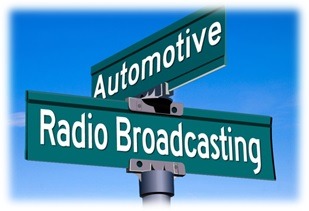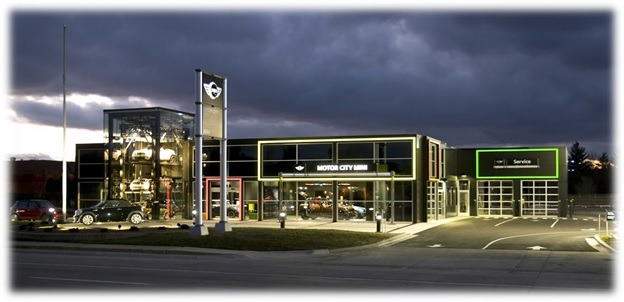One of the worst offshoots of a struggling economy and a generation that is being punished as a result of it is a lot of misunderstanding about Millennials themselves. We like to talk about entire generations as if they have common traits and characteristics. On the one hand, most of us comprehend the dangers of generalizing about an entire group of young adults. And on the other, we love to talk about them as a single, homogenized group of people.
Especially the pundits and so-called experts. It seems like everyone points out how different GenY is from their older brothers, sisters, and parents, but there is so little true comprehension of the sweeping changes in our society that are being triggered by these Millennials – arguably the most influential generation of Americans since…Baby Boomers.
There’s a reason why once controversial debates like same sex marriage, the legalization of pot, and other divisive issues are falling by the wayside. Millennials are leading the way toward an era of greater diversity, and a more meaningful understanding of what’s important – and what isn’t.
It’s not often pretty, because like so many other societal forces, Millennials are disrupting some big time institutions. Like organized religion. Close to a third of GenY is “unaffiliated” (compared with only 13% of Boomer kids back in the early ‘70s). You know there are a lot of priests, rabbis, pastors, and ministers who are wringing their holy hands over their futures.
And other industries and organizations are affected by Millennials, too.
 Like radio and automotive. And you hear it bandied about with growing frequency that Millennials don’t care about the radio, nor are they interested in buying cars.
Like radio and automotive. And you hear it bandied about with growing frequency that Millennials don’t care about the radio, nor are they interested in buying cars.
And much of these conclusions are sadly anecdotal, often based on conversations with a handful of these GenYers in a classroom. That’s like steering a brand’s strategy based on a focus group or two. That’s why we’re digging deep in Techsurvey10 to get at some of these suppositions about Millennials, as well as to demystify some of the popular assumptions about this generation. We already have north of 7,500 GenYers who have taken our survey, helping us unravel their wants, needs, desires, and perceptions.
So in the truth vs. rumor department, here’s some interesting information about car buying based on research – and a more revealing story about Millennials and automotive.
A recent article in Bloomberg Businessweek reported on a Deloitte study (23,000 Millennials in 19 countries, including more than 2,000 in the U.S.) that shows that six in ten GenYers intend to acquire a car by 2017; nearly a quarter say they’ll have a vehicle within the year. And to repudiate the conventional wisdom that suggests that Millennials and cars are like oil and water, only 8% say they will never buy a vehicle.
But here’s the catch – just like reaching them in radio, automakers have to focus on a different appeal, centered around safety and access to their “lifestyle technology” while driving. That’s one of the key reasons why the automakers are laser-focused on “connected car” features and telematics.
So what’s the barrier for Millennials and why do we keep reading about their reluctance to take that leap into ownership?
The research shows it’s about the money. As we know, this is a generation that has been buffeted by the economic winds. From the burden of student loans to a low minimum wage to an unfriendly job market, Millennials face barriers that Xers and Boomers never encountered.
To suggest they eschew cars because they’re so different from us is naïve. To understand their motivations and the unique and difficult situations many face is at the heart of effectively listening to them and engaging them.
It turns out the nearly two-thirds of Millennials love their cars. But affordability is an issue to a generation that has faced the same financial challenges that many Depression-era Americans experienced. It is about the money.
The automakers respect the size of the Millennial generation, its importance, and the unique challenges they face. As an industry, they know that GenY holds the key to the future. Understanding them and connecting with them in their formative years is mission critical for the OEMs.
As Ford’s COO Mark Fields noted that automakers need to tune in to younger buyers “in a whole new way.”
BMW is also getting the message. At a recent J.D. Power conference, the automaker acknowledged its poor showing at the bottom of the National Automobile Dealers Association dealer attitude study. To turn this around, BMW is keeping salespeople away from customers. Now the first encounter will be with “BMW geniuses” who are young, tuned-in, and not on commission.
And it doesn’t stop there. BMW has designed smartphone apps that help walk new owners through the rigors of setting up their new vehicles, including a “Genius Hotline” that owners can connect with from the car.
Who do you think they’re emulating and who are they targeting with that strategy?
The Mini Cooper dealership that recently opened down the street from our office (pictured above) is indicative of the growing importance of design, as Apple and other retailers have learned. The DX – or dealership experience – is at the heart of forging new relationships and engagement with a Millennial audience.
The automotive industry knows they have a lot to learn about Millennials. And that’s another reason why they’re way ahead of radio in cracking the code. At DASH, we brought the radio and the automotive industry together in a unique way. But it was just a start, and that’s reason why continuing the DASH initiative is an imperative.
The first DASH conference was the hors d’oeuvres. Now the mission is to build on that first foray, and start seeking out alliances and opportunities where the two industries can work together. And in that light, broadcasters would do well to take copious notes when the OEMs and dealers speak. There are openin gs for radio brands, and their programmers and sales managers to participate in the new wave of the automobile, from telematics to the dealer experience. But the radio industry needs to act like it cares.
gs for radio brands, and their programmers and sales managers to participate in the new wave of the automobile, from telematics to the dealer experience. But the radio industry needs to act like it cares.
Millennials may be the common ground for both industries. As the automobile industry experiences its most significant systemic change since the assembly line, radio has the opportunity to play a role in how it all plays out – nationally and locally. But it comes with the realization that understanding and listening to Generation Y is as important to radio’s future as it is to Ford’s, Panasonic’s, and GM’s.
For business, industry, and media, Millennials are a distinct challenge, standing apart from other generations. But so were Baby Boomers back in the ‘50s and ‘60s. It started with radio recognizing the power of the youth market, and designing programming and content that appealed directly to them.
With GenY, it has everything to do with what the Boston Consulting Group calls “the reciprocity principle:”
“Millennials expect a two-way mutual relationship with companies and their brands.”
That doesn’t sound like the car companies we grew up with – another key reason why the OEMs are rethinking more than just their “center stacks” as they approach this generation of potential car buyers. The fundamental ways in which they do business with this generation is being debated, discussed, and tested.
For radio to successfully participate with other business sectors, and to ensure its relevance through the first quarter of the 21st century, that same forward thinking will be . A social strategy is at the heart of connecting with GenY as they define brands and influence the spending habits of their friends. And how many radio companies, clusters, and stations really have one?
It starts with a commitment to the truth that Gen Y is our future. And that’s something that the radio industry needs to embrace.
Millennials matter.
- Media And Technology In 2025: Believe It Or Not! - April 18, 2025
- In Radio, You Just Never Know - April 17, 2025
- The Secret To Making A Great Podcast (And Great Radio) - April 16, 2025





What you wrote could be an outline for a book – don’t worry, I’m not going to write it here or anywhere else. I get a few takeaways – first one big one. Henry Ford understood that his cars had to be affordable enough that his workers could buy them. This issue is bigger than the auto industry. If millennials can’t afford to buy things because of stagnant wages, automation translating to efficiency/fewer jobs and mountains of student debt, we’ll end up with a super efficient private sector with no one who can afford their products.
Radio conversely is free – and even the services that charge (Spotify, Sirius/XM, etc.) are cheap enough that most can afford them. So in the case of radio and its competition, its about the experience and relationship. IMO, radio hasn’t changed that significantly in over 20 years – so if millennials expect something different from their vendors, radio isn’t addressing that virtually at all. The silver lining seems to be that most people under 30 can’t afford new cars with a media agnostic center stack, so the playing field is less level (in radio’s favor) than it otherwise would be.
To use an analogy that millennials won’t understand – I’m sounding like a broken record here, but radio needs to put people who either are, or at least get 12-34s into real positions of authority.
Jay Leno admitted (on 60 Minutes) that hes out of touch with the social media generation and that as a result, despite still being #1, its time for someone like Jimmy Fallon who understands it all naturally to take over. Radio needs to make the same transition and put talented people who are in touch with where things are and are going in charge.
They aren’t there now. Its time that they, and they analysts clamoring for more budget cuts realize that this is in radio’s financial best interest. I actually put myself in the “all bout the money camp”. I’m all about the money – and when some public radio company starts understanding the future and at least reacts to the present, I’ll invest in their stock. To radio’s leaders – if you’re all about the money………
Well put, Bob, and if you can get me a publisher for that book, maybe we’re got something here.
Seriously, the Millennial challenge is a real one and the fact the auto companies are dealing with it head on should be a sign to radio that 1) it makes sense for us to focus on Gen Y, and 2) if we’re going to have a meaningful dialogue and smart partnerships with the OEMs, we better start speaking their language.
This raises all those squishy questions about how to appeal to Gen Y in a job market where they’d rather work elsewhere. It’s a tough challenge, but you’re right that it starts with a commitment to bringing them into the conference room and listening to them. And a ping pong table might help, too.
Great article – if this was 1995… #waytoolate
Maybe so. But I’d like to think that the medium still has the simplicity and ubiquity to make a run.
Speaking of Millennials…I interviewed one yesterday for a sales job at a radio station. Here is a person with a degree from Santa Clara just 6 years ago. She had a resume’ that’s typical in Silicon Valley, moving from one great digital startup to another after about 18 months at each stop and is killing it in the digital ad space.
So I asked why in the world are you here? Why are you thinking of a career change to a media or platform that is dead? Millennials don’t listen to the radio. You are used to selling verifiable digital metrics. Radio doesn’t have that. Her answers was very insightful…
She was tired…tired of the numbers game. Tired of the nameless, faceless, statistics driven business that is digital ad buying. She said “there are probably 5 new companies that just started up while we are having this conversation that have data-mined this business space and are offering new ways to reach consumers based only on data”. When she’s wining and dining someone from Marriot International about doing business they rarely talk about people, it’s all about the metrics. She also sees an end to positions like hers as “programmatic buying” is taking over. You don’t need relationships for that and the company will save a lot of money in personnel costs.
She likes sales. But sales to her meant talking with real people about real problems with real solutions. She also loves country music (our format) and understands the “family” nature and connectedness of the country community. Yes she still listens to radio and so do her friends. When she listens she hears this station is doing something that matters and touches people’s lives. She wants to be a part of it. She sought us out.
The one thing that many people don’t understand about Millennials is also the one thing that they are not valuing about radio. Millennials want to know that the work they do has meaning, impact…that what they do matters.
So we aren’t going to hire this Millennial for her digital expertise (although it will be a great asset)…we are hiring her to add another generation who wants to join us in pursuit of our mission – to improve listeners lives.
Great comment, Mike, and perhaps a surprise to some people who feel they have this Gen Y thing all figured out. It sounds like you have a winner, and I can tell you that the jacAPPS side of our office exudes many of these same dedicated, committed qualities. People of all generations want to do meaningful work, to make a difference, to matter. Keep us up to date with her progress, and thanks again for a great story.